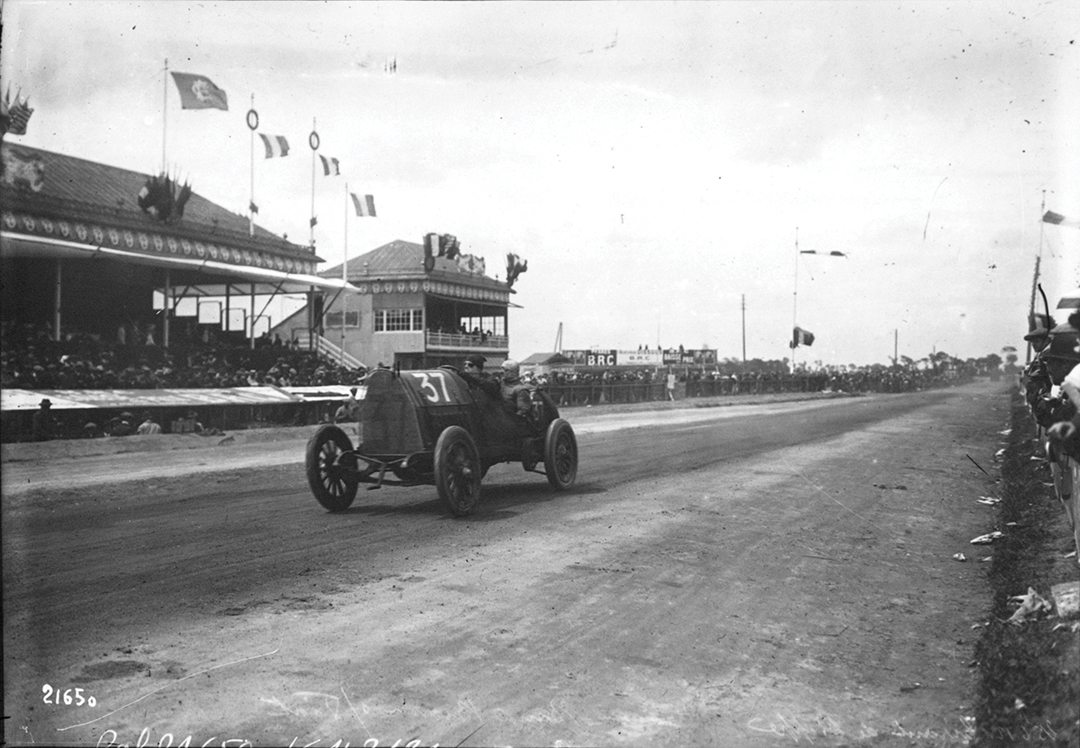Ask anyone who was the first American to win a Grand Prix and chances are they will say Phil Hill or Dan Gurney, heroes of the ’60s. But it was, in fact, much earlier than that. The first was David Bruce-Brown, a strikingly handsome young New Yorker and son of a fabulously wealthy family, who won the 1910 American Grand Prize—same thing, different language—on November 12, 1910, over a century ago. He was 23 years old at the time and had proved himself to be a towering natural talent with a glittering career in front of him. Yet he hardly had a career at all, because it was cut pitifully short on October 1, 1912, when he crashed and was fatally injured during practice for that year’s Grand Prize at Milwaukee.
At 18, the lantern-jawed David loved anything to do with the relatively new sport of motor racing, and wrangled himself a job as a junior mechanic with the Fiat team at Daytona. After the professionals had had their fun, the amateurs were allowed to compete in a one-mile event, for which Bruce-Brown was loaned one of the racing Fiats—and he won.
No Subscription? You’re missing out
Get immediate ad-free access to all our premium content.
Get Started



